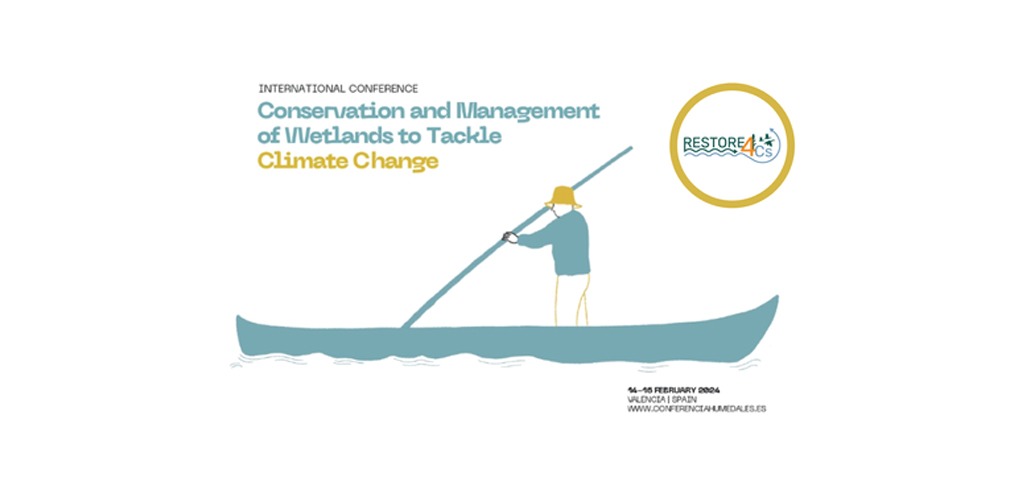
RESTORE4Cs – the project participated by LifeWatch ERIC on modelling wetland restoration – will be present at the International Conference Conservation and Management of Wetlands to Tackle Climate Change from 14 to 16 February in Valencia, Spain.
The event is organised by Fundación Global Nature together with the University of Valencia, the Generalitat Valenciana and the City Council of Valencia. The aim is to share the latest scientific and technical advances on wetlands and climate change and their crucial role. The discussions will mainly centre around governance frameworks, opportunities for creating green jobs, and the pressing need for conservation efforts.
The conference on conservation and management of wetlands will bring together researchers, policymakers, representatives from international organisations, and other stakeholders. The goal is to facilitate international networking and serve as a platform for sharing scientific and technical advancements. Practitioners and managers will be equipped with the necessary tools for the sustainable management of wetlands. Also, this will enable them to make strategic decisions in the face of global change. This year’s focus is on the Mediterranean, which has depleted over 50% of its natural wetlands since 1970.
LifeWatch ERIC – who oversees the project’s communication and dissemination – will attend the conference in collaboration with MedWet. Other RESTORE4Cs partners, including the University of Aveiro, the University of Barcelona, the European Topic Centre at the University of Malaga, WasserCluster Lunz & the University of Vienna, and Tour du Valat, will also attend the conference as members of the scientific committee.
For those unable to attend in person, the conference will be available via streaming. For more information, please visit the official website.